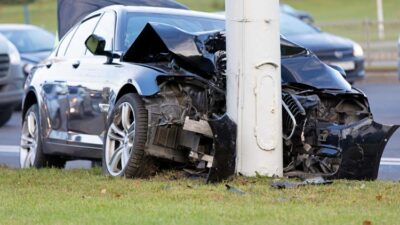In October 2019, the media office of the Ras Al Khaimah government published a press release that caught the attention of various online news outlets. Along with the Chamber of Commerce and the Tourism Development Authority, government officials in Ras al Khaimah organized a special committee to improve upon a Guinness World Record that the Emirate had set the previous year. Under the hashtag #RAKNYE2020, Ras al Khaimah announced its intentions to put on the most dazzling New Year’s Eve fireworks display involving drone technology and laser-guided pyrotechnic shells that will recreate the downtown skyline on the night sky.
RAK already holds a fireworks Guinness World Record; the idea behind making it even more difficult to break is to benefit of the growing hospitality sector, and it is a good example of how far the government of His Highness Sheikh Saud bin Saqr al Qasimi will go to nurture the economy of his Emirate. The promotion of RAK as an attractive destination to do business has been a priority of His Highness since his late father Sheikh Saqr appointed him to handle the sovereign interests of the Emirate in the 1980s. The coordinating government agency in charge of economic transformation, the RAK Investment Authority (RAKIA) was a project that Sheikh Saqr entrusted his son with, and it has largely succeeded in placing the Emirate on the radar of global business activity.
There are various interesting aspects of RAKIA and how it operates. First of all, this is not a classic sovereign wealth fund; unlike the funds operated by Dubai and Abu Dhabi, which rely on the revenue generated from crude oil production, RAKIA is capitalized by the activities conducted by the government in the global financial markets. Since RAK does not enjoy the benefits of massive oil reservoirs, it must resort to raising money by means of sovereign debt instruments, and this does not pose a problem for a jurisdiction with long-term “A” ratings issued by agencies such as Fitch and Moody’s. In essence, RAKIA’s mission is to promote the corporate-friendly climate of the Emirate as a jurisdiction where launching a new business venture is not only easy but also very advantageous.
While His Highness is very progressive in terms of advancing the business outlook and industrial output of RAK, he is conservative in terms of money management. A perennial goal of the RAKIA fund is to achieve and maintain a “AA” rating; thus far, it has been able to hold on to “A” ratings for many years, but the Sheikh does not wish to take unnecessary risks. In 2010, RAKIA’s management decided to divest a number of international assets for the purpose of improving its financial outlook. The philosophy behind this move was to ensure that the fund would only hold strategic assets. RAKIA prefers to attract foreign direct investment than to go out and seek opportunities. Throughout the history of the fund, its portfolio has held between 3,000 and 6,000 companies, and managers want to keep this pace going.
Since RAKIA is intrinsically tied to the treasury activities of the government, there have been times when operations became challenging. When looking at the substantial infrastructure improvements made across RAK thus far in the century, it is clear to see that billions of dollars in sovereign debt instruments had to be issued and managed in order to fund ambitious projects. In the United Arab Emirates, there is always the prospect of a financial crisis around the corner, and this has already happened in Dubai because of accelerated growth, but RAKIA’s managers are keen on avoiding such situations. In the world of sovereign debt management, increasing gross domestic product and per capita income are the best measures against falling behind the deficit curve, and foreign direct investment is one way to achieving this success.
In the end, the future of RAKIA and its noble mission to elevate the economic status of Ras al Khaimah on the global stage will likely prevail as long as managers can continue to attract foreign investment, and this happens to be the same strategy that Dubai, its neighbor to the west, has been trying to apply. There is a difference, however, in the sense that RAK is taking a more measured approach so that it does not have to suddenly slam on the economic development brakes.













Comments